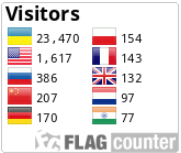PRIORITIES OF HIGhER EDUCATION IN POLAND AND IN EUROPE
DOI:
https://doi.org/10.28925/2518-7635.2016.1.6Keywords:
Poland, priority, strategy, higher education, the European UnionAbstract
The article presents an analysis of the most important priorities for higher education in Poland and in Europe. The main objectives and tasks are outlined on the basis of the selected strategic documents, reports and statements of various Polish and international bodies interested in education at a higher level. Challenges for higher education in Poland and Europe relate to different dimensions. First of all, issues related to the quality of education and its accessibility, organizing the education process and financing, as well as research and development activities in national and international scale come to the fore. An important priority is connecting of learning outcomes with the labour market. These challenges arise from the plan to build an economy based on knowledge and innovation, as well as continuing the concept of learning throughout life.Downloads
References
Bednarek, J. (2003). White Book of the European Commission. Encyclopedia of Pedagogy of the twenty-first century. Warsaw: Academic Publishing House “Zak”, 1.
Chapinski, J., Panek, T. (ed.). (2015). Social Diagnosis 2015. The conditions and quality of life of Poles. Report. Warsaw: Council for Social Monitoring.
Cherwinska, E. (2004). The Lisbon Strategy. Warsaw: Analysis and Expertise of the Sejm.
E & YB IBGR. The diagnosis of the state of higher education in Poland. (2009). Warsaw: Ernst & Young Business Advisory, Institute for Market Economy.
EESC. The (Lisbon) Strategy after 2010: Proposals from organized civil society. Integrated report for the European Council. (2010). Brussels: European Economic and Social Committee.
EPIiR. Knowledge-based economy. (2016). Retrieved from http:// europejskiportal.eu/gospodarka-oparta-na-wiedzy
Eurydice. Modernisation of Higher Education in Europe 2011: Funding and the Social Dimension. (2011). Retrieved from http://eacea.ec.europa.eu/education/ eurydice/thematic_studies_en.php
Hejnicka-Bezwinska, T. (2008). General Pedagogy. Warsaw: Publishing and Academic and Professional.
IER. Report on the state of education 2011. Continuation of change. (2012). Warsaw: Institute for Educational Research.
IER. Report on the state of education in 2010. The public road to knowledge. (2011). Warsaw: Institute for Educational Research.
EC. Employment and social policies: framework for investing in quality. Communication from the Commission to the Council, the European Parliament, the European Economic and Social Committee and the Committee of the Regions. Brussels: European Commission. (2009). Retrieved from http://eurlex.europa.eu/ legalcontent/EN/TXT/?uri=COM:2001:0313:FIN
EC. EUROPE 2020. Strategy for smart, sustainable and inclusive growth. Communication from the European Commission. (2010). Brussels: European Commission.
EC // EACEA / Eurydice. Modernization of Higher Education in Europe: Access, Retention and Employability 2014. Luxembourg: Publications Office of the European Union.
CPCM. Report on Polish Intellectual Capital. (2008). Warsaw: Chancellery of the President of the Council of Ministers.
CPCM. Strategy for the Development of Human Capital. Poland 2030. (2011). Retrieved from http://zds.kprm.gov.pl/strategia-rozwoju-kapitalu-ludzkiego
CPCM. The perspective of learning throughout life. Annex to Resolution No. 160/2013 of the Council of Ministers dated 10 September 2013. (2013).
MSHE. Higher education in Poland. (2013). Warsaw: Ministry of Science and Higher Education.
MSHE. Program for the development of higher education and science for the years 2015-2030. (2015). Warsaw: Ministry of Science and Higher Education.
OECD. Education at a Glance 2014: Highlights, OECD Publishing. (2014). Retrieved from http://dx.doi.org/10.1787/eag_highlights-2014-en
Published
How to Cite
Issue
Section
License
Copyright (c) 2017 The Modern Higher Education Review

This work is licensed under a Creative Commons Attribution-NonCommercial 4.0 International License.













